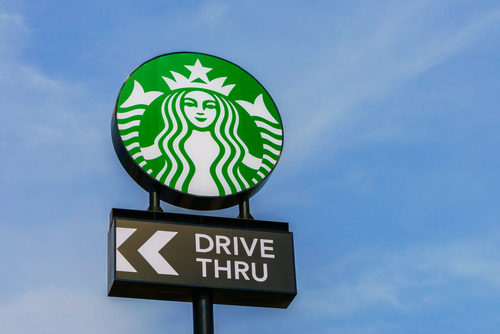Supreme Court sides with Starbucks in blow to union activists

The Supreme Court ruled Thursday to restrict the National Labor Relations Board’s authority to obtain relief for fired union activists, in a win for Starbucks that could deal a blow to labor organizing efforts. (Photo by jannoon028/Shutterstock)
The Supreme Court ruled Thursday to restrict the National Labor Relations Board’s authority to obtain relief for fired union activists, in a win for Starbucks that could deal a blow to labor organizing efforts.
In April, the justices heard Starbucks’s challenge to a federal district court’s 2022 decision to order the coffee retailer to reinstate a group of seven baristas who claimed Starbucks fired them from a Memphis store in retaliation for union-organizing.
The Seattle-based coffee giant says the move to fire the Memphis workers was within its rights under the law because the workers violated company policy by inviting a TV news crew into the store after hours. The National Labor Relations Board (NLRB) agreed at the time with the workers’ claim that Starbucks had illegally fired them, and a court granted an injunction forcing Starbucks to rehire the workers.
But the Supreme Court found that the legal test the district court used to make that decision was too broad and inconsistent with other regional courts. Eight justices supported the majority decision, written by Justice Clarence Thomas, to restrict how courts determine whether to grant relief for unions when companies are accused of violating labor law. Justice Ketanji Brown Jackson wrote a separate opinion concurring with the majority, but dissenting on several portions of the ruling.
Jay Go-Guasch, a spokesperson for Starbucks, said in a statement that the company is “committed to providing everyone who wears the green apron a bridge to a better future.”
“Consistent federal standards are important in ensuring that employees know their rights and consistent labor practices are upheld no matter where in the country they work and live,” Go-Guasch said.
The NLRB did not respond to a request for comment.
Lynne Fox, president of Workers United, the union representing Starbucks workers, said in a statement that the ruling “underscores how the economy is rigged against working people all the way up to the Supreme Court.”
“Working people have so few tools to protect and defend themselves when their employers break the law. That makes today’s ruling by the Supreme Court particularly egregious,” Fox said. “Regardless of large corporations’ machinations at the Supreme Court, workers are continuing to organize.”
Christopher Foster, an attorney who represents employers on labor matters, said the decision could lead more companies to make legal challenges to the authority of the NLRB, which has taken an aggressive approach to cracking down on companies for allegedly violating workers’ union rights during the Biden administration.
“The perspective of a lot of employers is that there’s been novel changes in the law,” Foster said. “And I think this vindicates the strategy of going to the courts and not accepting the NLRB’s decision in any given matter.”
Legal experts say the decision could have a chilling effect on union drives during a period of heightened labor activism in the United States.
“This could hurt unions from obtaining relief through the board, particularly if you have a district court judge who doesn’t know labor law or quite frankly is a real conservative and is going to always back the business,” said James M. Cooney, a professor of labor law at Rutgers University.
How much this ruling hurts organized labor “really depends on whether [district courts] see this as a signal that they should be more stringent on the board’s requests for injunctions,” Cooney added. “That remains to be seen.”
Federal circuit courts have the authority to grant NLRB requests to force companies to rehire union organizers, or require other actions like reopening closed stores or bargaining with unions.
The ruling came as Starbucks appears to have taken a new, more cordial tone with its union, agreeing to talks that could pave the way to the first labor contracts for stores that have already unionized. The company and the union resumed bargaining in April after a breakdown in talks, with a goal of withdrawing ongoing litigation.
More than 445 Starbucks stores representing over 10,000 baristas nationwide have unionized with Workers United since late 2021, the union said.
Write a letter to the editor, share a story tip or update, or report an error.



